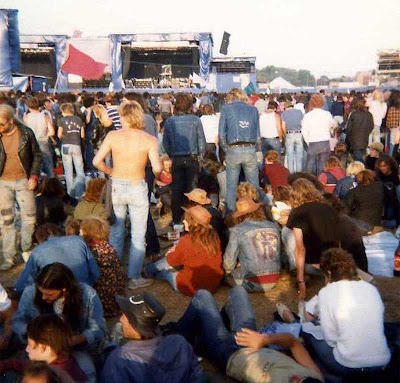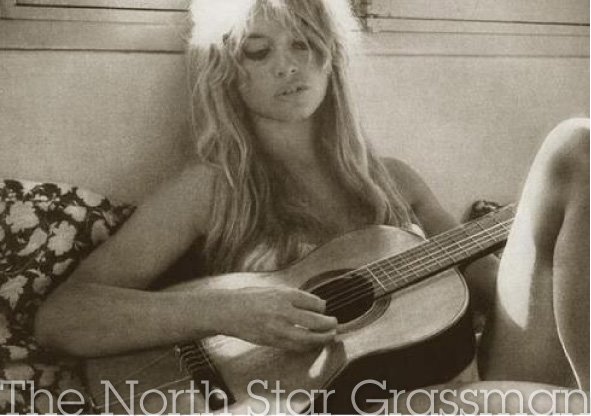


On August 26th, 1983, I attended my very first rock festival. To my denim-clad, rock obsessed friends and I, ‘Reading Rock’ as we called it, was the Mecca for all fans of heavy and progressive rock music. Furthermore, it was only 15 minutes on the train from my parent’s house where I still lived in 1983. (I was sixteen years old.) My heroes at the time, Blackfoot, Genesis, Faces, Yes and Genesis had all performed at Reading in the past ten years so I was more than excited as one can imagine.
The Reading Festival originates from the National Jazz Festival, which was conceived by Harold Pendleton (founder of the Marquee Club in London) and was first held at Richmond Athletic Ground in 1961. This festival, in turn, took inspiration from events held in America. Throughout its first decade the festival changed names and moved around sites several times, being held at Windsor Racecourse, Kempton Park and Plumpton, before reaching its permanent home at Reading in 1971.
1970s
The line-up settled into a pattern of progressive rock, blues and heavy metal during the 1970s. It did dabble with punk rock in 1978 when The Jam, Sham 69 and Penetration played. The festival attempted to provide both traditional rock acts and new punk bands, leading to clashes between the two sets of fans. Although The Ramones played the following year, the festival gradually became known for focusing on heavy metal and rock acts.
1980s
During this decade, the festival followed a similar format to that established in the late 1970s, with large crowds flocking to see the era's leading rock and heavy metal acts perform on the last two days, with a more varied lineup including punk and new wave bands on the opening day.
In 1984 and 1985, the Conservative Party-led local council effectively banned the festival by reclaiming the festival site for 'development' and refusing to grant licences for any alternative sites in the Reading area. In 1984, many acts were already booked to appear, tickets were on sale with Marillion (2nd on the bill on Saturday night the previous year) due to be one of this year's headliners. The promoters tried in vain to salvage what they could but a proposed move to Lilford in Northamptonshire failed. The resulting gap in the British festival calendar kick-started the rise of the minor CND benefit event at Glastonbury from obscure beginnings as a "hippie" festival in the 1970s.
After Labour regained control of the council in 1986, permission was given for fields adjacent to the original festival site to be used, with a line-up put together at just three months' notice.
The following year saw a record attendance at what was considered by some to be the last of the "classic" rock years of the festival, with headlining acts such as The Mission, Alice Cooper and Status Quo.
Late 80s slump
1988 saw a disastrous attempt to take the festival in a mainstream commercial pop direction, dominated by the likes of Starship, Squeeze, Bonnie Tyler and Meat Loaf (who was "bottled" off stage), and the ensuing recriminations eventually saw the ousting of original festival promoter Harold Pendleton by the Mean Fiddler Music Group organisation.
Pendleton initially tried to continue at a new site near Newbury using the name "Redding Festival" but this failed to take off. Meanwhile, the official Reading Festival, now under Mean Fiddler guidance, continued at the Thames-side site in Reading, pursuing an almost completely Goth and indie music policy that alienated much of the traditional fan base and saw attendances continue to fall.
The future of the festival looked in doubt at this point. However, things were to improve from 1992 onwards as the festival broadened its musical policy and attendances gradually increased and the Reading Festival, as it is now known, became the outdoor event that rivaled Glastonbury for quality and prestige.
However, in 1983 the band my friends and I were most interested in seeing was Marillion, a six-piece progressive rock band from nearby town called Aylesbury. We were obsessed with their debut album Script For A Jester’s Tear and held it in the same esteem as Close To The Edge by Yes and Foxtrot by Genesis.
The three day event was headlined by the Stranglers on Friday night, an Ian Gillan fronted Black Sabbath on Saturday night and Thin Lizzy on Sunday night. Of course my friends and I had no interest whatsoever in seeing The Stranglers as they were ‘punk’ and therefore crap. Black Sabbath were touring with their dreadful Born Again album and I was never a big fan of them anyway. Sadly, Thin Lizzy played their last ever gig on the Sunday night.
In all honesty, the first day was dreadful. Lame, prog bands such as Solstice and Pendragon were uninspiring and the reggae band Steel Pulse were bottled off the stage. I left way before Big Country and The Stranglers and I’m glad I did.
The second day was different. The weather was beautiful, and my friends and I were drunk on Courage Pale Ale. Despite having to endure dreadful metal bands such as Heavy Pettin’, Crazy Angel and Fortune, Stevie Ray Vaughan came on in the middle of the afternoon and blew everyone away. Marillion hit the stage at around 6pm and opened with their 12 minute epic Grendel. I went crazy, as did all the other progressive rock fans and they proceeded to play a flawless set. I had never seen them before and I was in heaven. As expected, Black Sabbath (with ELO’s Bev Bevan on drums) were terrible and we left after five songs.
I was so hungover on the Sunday, I unwisely decided not to attend the last day of Reading Rock. Of course I missed Thin Lizzy’s last ever show which by all accounts, was superb. I have been to many, many festivals since and seen such incredible artists such as Neil Young, Pearl Jam, Jackson Browne, The Black Crowes, Rush etc, but the excitement of attending my very first rock festival has never been equalled.



